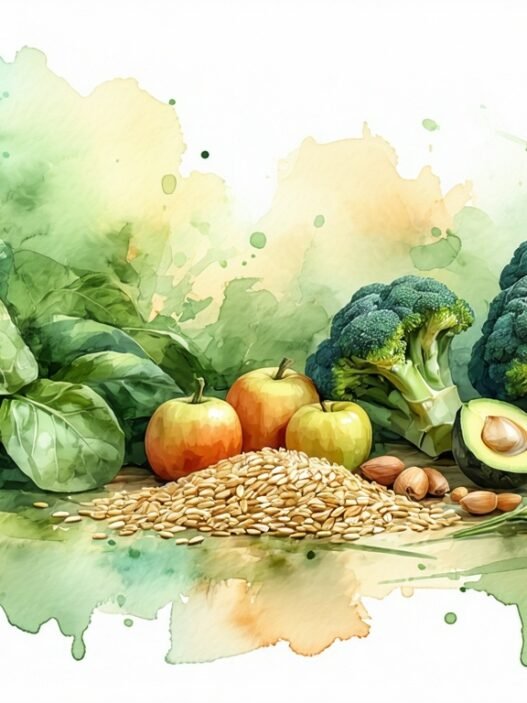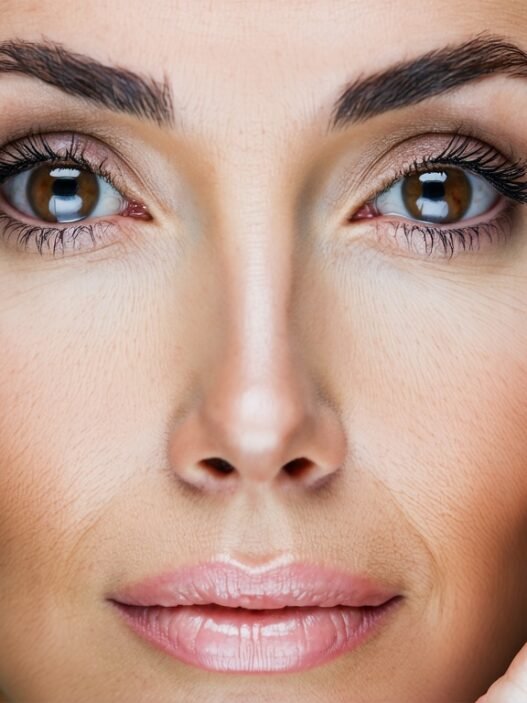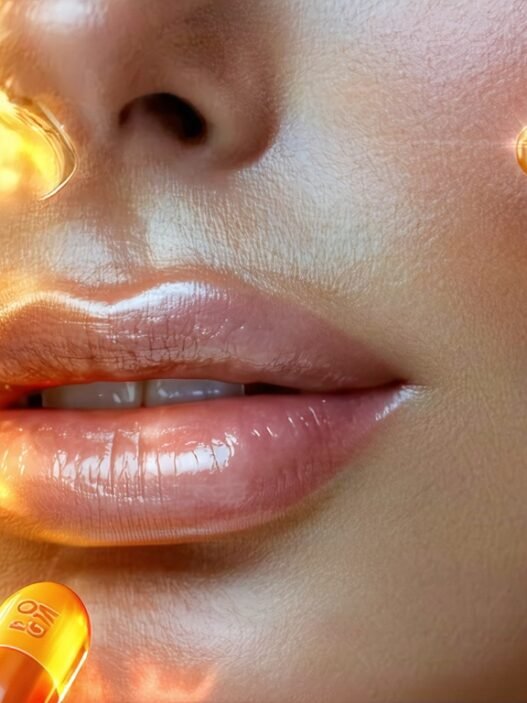Understanding CoQ10 for Skin
Importance of CoQ10 in Skincare
CoQ10, or Coenzyme Q10, is a naturally occurring antioxidant found in the cells of the human body. This powerful compound plays a pivotal role in maintaining skin health, especially as we age. The importance of CoQ10 in skincare lies in its ability to counteract the effects of aging by protecting cells from oxidative stress and aiding in cellular energy production. As we age, levels of CoQ10 in the skin diminish, making it essential to replenish this key component to maintain a youthful appearance.
CoQ10 acts as a potent antioxidant that helps neutralize harmful free radicals generated during energy production, protecting skin cells from damage that contributes to aging and other skin concerns (NIVEA). It shields the skin from oxidative damage, thus preventing the breakdown of essential cellular structures and proteins such as collagen and elastin. Replenishing CoQ10 levels can help delay the visible signs of aging and maintain the skin’s health and vitality.
Functions of CoQ10 in Skin Health
CoQ10 serves several critical functions in maintaining and improving skin health:
-
Antioxidant Protection: CoQ10 functions as a barrier against reactive oxygen species (ROS) and oxidative stress in the skin, preventing damage to cellular structures and the extracellular matrix, including collagen. This protection helps maintain skin firmness and elasticity, which are vital for a youthful appearance.
-
Collagen and Elastin Synthesis: It plays a crucial role in the synthesis of essential skin proteins like collagen and elastin. Collagen provides structure to the skin, while elastin ensures flexibility and resilience. CoQ10 supports the production of these proteins, thereby enhancing skin firmness and reducing fine lines and wrinkles.
-
Cellular Energy Production: CoQ10 is integral to the process of cellular energy production. It enhances cellular respiration and maintains appropriate energy levels within skin cells, which is essential for their repair and regeneration. This not only helps in maintaining healthy skin but also in accelerating the healing of damaged skin (Journal of Clinical and Aesthetic Dermatology).
| Function | Description |
|---|---|
| Antioxidant Protection | Shields skin from oxidative damage, preventing the breakdown of collagen and elastin. |
| Collagen and Elastin Synthesis | Supports production of essential skin proteins, enhancing firmness and elasticity. |
| Cellular Energy Production | Boosts cellular respiration and maintains energy levels, aiding in skin repair and regeneration. |
The multifaceted role of CoQ10 in skin health underscores its importance in anti-aging skincare routines. By incorporating CoQ10 into daily skincare, one can help combat the visible signs of aging, restore skin’s youthful glow, and preserve its vitality. For more on the anti-aging properties of CoQ10, visit our article on coq10 and wrinkles.
Benefits of CoQ10
Anti-Aging Effects
Coenzyme Q10 (CoQ10) demonstrates impressive anti-aging benefits. It increases proliferation of fibroblasts, enhances mRNA expression of collagen and elastin, and reduces inflammatory cytokine production in skin cells. CoQ10 supplementation improves cellular oxidative status, prevents cellular senescence, and reverses the reduced collagen and elastin expression associated with skin aging (Journal of Clinical and Aesthetic Dermatology).
Studies also indicate that CoQ10 penetrates the skin effectively, reducing the depth of wrinkles, decreasing reactive oxygen species (ROS), and enhancing antioxidative capacity. This leads to improved oxidative status and protection against UV irradiation, making CoQ10 an essential ingredient in anti-aging skincare (PMCID: PMC3818570).
Protective Role Against Environmental Damage
As a potent antioxidant, CoQ10 neutralizes harmful free radicals generated during energy production. This protects skin cells from damage, which contributes to skin aging and other concerns. By supporting cellular energy production and boosting collagen and elastin production, CoQ10 promotes healthier and more youthful-looking skin (NIVEA).
Improvement in Skin Firmness and Elasticity
CoQ10 plays a significant role in the synthesis of essential skin proteins like collagen and elastin, contributing to better skin firmness and elasticity. By supporting the production of these proteins, CoQ10 helps maintain a youthful appearance.
| Benefit | Mechanism | Reference |
|---|---|---|
| Reduces Wrinkles | Penetrates skin and reduces ROS | Journal of Clinical and Aesthetic Dermatology |
| Protects Against UV Damage | Enhances antioxidative capacity | PMCID: PMC3818570 |
| Boosts Collagen Production | Enhances mRNA expression | Journal of Clinical and Aesthetic Dermatology |
| Improves Skin Elasticity | Supports synthesis of essential proteins | NIVEA |
CoQ10 is a multifunctional compound offering several benefits for aging skin. For more information on CoQ10 benefits for skin, check out our detailed guides on CoQ10 and wrinkles, CoQ10 for skin elasticity, and other CoQ10 skincare products.
Mechanisms of CoQ10 in Skincare
Coenzyme Q10 (CoQ10) plays a pivotal role in skincare due to its multifaceted mechanisms. Understanding these mechanisms can provide insight into how CoQ10 contributes to combating effects of aging on the skin.
Cellular Repair Processes
CoQ10 is vital for cellular repair and regeneration. It enhances the proliferation of fibroblasts, which are cells responsible for producing collagen and elastin (NCBI). These proteins are essential for maintaining the structural integrity and elasticity of the skin. Additionally, CoQ10 aids in the repair of oxidative damage by rejuvenating other antioxidants such as Vitamin E.
Through these cellular repair processes, CoQ10 ensures that the skin maintains its youthful appearance and resilience, countering the effects of environmental stress and aging.
Synthesis of Essential Skin Proteins
A key aspect of CoQ10’s effectiveness lies in its role in the synthesis of essential skin proteins. CoQ10 supports the production of collagen and elastin, which are fundamental for skin firmness and elasticity (NIVEA). These proteins provide the skin with its structural framework, ensuring it remains firm and less prone to sagging.
By enhancing the mRNA expression of collagen and elastin, CoQ10 helps to maintain skin density and volume. Reduced levels of these proteins are commonly associated with aging, and CoQ10 supplementation has shown to reverse this trend, leading to improvements in skin texture and elasticity.
Antioxidant Properties
CoQ10’s antioxidant properties play a crucial role in protecting the skin from oxidative stress and reactive oxygen species (ROS). These harmful agents can damage cellular structures and extracellular matrix components like collagen and elastin. By functioning as a powerful antioxidant, CoQ10 neutralizes these free radicals, preventing them from causing cellular damage.
This antioxidant action not only safeguards the skin’s structural proteins but also stabilizes cellular membranes and improves the overall oxidative status of skin cells. Clinical studies have demonstrated that topical application of CoQ10 can reduce wrinkles and improve skin elasticity by mitigating the acceleration of wrinkle formation caused by aging and UV exposure (NCBI).
To delve further into the antioxidant benefits of CoQ10, explore our article on coq10 antioxidant benefits. For products that leverage CoQ10’s rejuvenating properties, check out coq10 skin care products. Additionally, learn how CoQ10’s impact on collagen contributes to its anti-aging prowess in coq10 and collagen production.
The Science Behind CoQ10 Efficacy
Double-Blind Study Results
A notable double-blind, placebo-controlled study investigated the effects of CoQ10 on skin parameters and condition. The study included 33 healthy subjects who were given daily supplementation of 50 mg and 150 mg of CoQ10 for 12 weeks. The results were promising:
- Reduced wrinkles: Participants experienced a visible reduction in wrinkles.
- Improved skin smoothness: There was a notable enhancement in the smoothness of their skin.
- Viscoelasticity preservation: CoQ10 intake limited seasonal deterioration of viscoelasticity.
- Diminished microrelief lines: Participants saw a reduction in fine lines.
| Supplementation | Wrinkles | Skin Smoothness | Viscoelasticity | Microrelief Lines |
|---|---|---|---|---|
| 50 mg CoQ10 | Reduced | Improved | Preserved | Reduced |
| 150 mg CoQ10 | Reduced | Improved | Preserved | Reduced |
CoQ10 and Skin Parameters
Topical application of CoQ10 has shown significant efficacy in improving various skin parameters. Clinical studies cited by the Journal of Clinical and Aesthetic Dermatology demonstrated several benefits:
- Antioxidative Status: Enhanced antioxidative status of the skin.
- Skin Moisturization: Increased skin hydration levels after 1-4 weeks of regular application.
- Reduction in Wrinkling and Roughness: Decreased periorbital skin wrinkling, roughness, and depth.
- Tolerance: The product was well tolerated with no discomfort reported by participants.
These improvements indicate that CoQ10 can effectively address skin aging concerns when included in skincare routines. For more on the benefits, you can explore coq10 benefits for skin.
Impact on Skin Smoothness and Viscoelasticity
CoQ10’s impact on skin smoothness and viscoelasticity has been well-documented. Regular use of CoQ10 in skincare products can result in:
- Increased Skin Smoothness: Reduction in roughness and enhanced texture.
- Enhanced Viscoelasticity: Preservation and improvement of the skin’s elastic properties, reducing seasonal deterioration.
Studies reported by PMC also highlight that topical CoQ10 can normalize cellular energy homeostasis and provide antioxidative effects. This helps to support and repair cutaneous damage and signs of aging.
Supporting Data
Further clinical data have demonstrated CoQ10’s effectiveness beyond just improving visible signs of aging (Nature). Products like Protransfersomal emulgel for CoQ10 delivery showed:
- Increased Anti-Aging Activity: Enhanced efficacy in reversing signs of skin aging.
- Low Skin Irritancy: Minimal irritation, making it suitable for sensitive skin.
By selecting CoQ10-infused skincare products, individuals can target a range of skin aging concerns effectively. More details on such products are available in our article on coq10 skin care products. For those interested in specific supplements, check out best coq10 supplements.
CoQ10 in Skincare Products
Topical Application Benefits
Coenzyme Q10 (CoQ10) is a naturally occurring molecule known for its antioxidant properties and ability to boost cellular energy. Applying CoQ10 topically can replenish its levels in the skin, providing a range of benefits. This includes normalizing cellular energy homeostasis, reversing signs of skin aging, and repairing cutaneous damage.
A study highlighted that CoQ10 can increase fibroblast proliferation, enhance mRNA expression of collagen and elastin, and improve the antioxidative status of the skin. This translates to better skin moisturization, reduced wrinkles, improved elasticity, and decreased skin roughness.
Complementing Retinol in Skincare Routines
CoQ10 can serve as a gentle alternative or complement to Retinol in skincare routines. Both ingredients combat signs of aging but through different mechanisms. CoQ10 protects against oxidative stress, while Retinol promotes cell turnover. Integrating CoQ10 can provide additional antioxidant protection and enhance overall skin vitality.
Using CoQ10 during both morning and night routines is recommended. It works well with other skincare ingredients like aloe vera, vitamin C, vitamin B3, and hyaluronic acid, adding multiple layers of benefits (Byrdie).
Suitability for Sensitive Skin
CoQ10 is also suitable for sensitive skin, offering a less irritating option compared to some commonly used anti-aging ingredients. Its gentle nature makes it a viable choice for those looking to avoid potential skin irritations, while still seeking effective anti-aging benefits.
To explore more about the benefits of CoQ10 in skincare, you may find our detailed articles on coq10 benefits for skin and coq10 anti-aging properties insightful. For those interested in complementary health benefits, discover coq10 and heart health and natural sources of coq10.
Clinical Studies and Real Results
Improvements in Skin Moisturization
Clinical studies have shown that CoQ10 significantly enhances skin hydration levels. A study highlighted an improvement in antioxidative status, a decrease in UVA-induced ultra-weak photon emission, and an increase in skin moisturization following regular application of a CoQ10 skincare product.
Furthermore, another study demonstrated that CoQ10 improves skin moisturization and reduces periorbital skin wrinkling, roughness, and depth when applied regularly for one to four weeks.
| Study | Duration | Improvement |
|---|---|---|
| PMC | Regular application | Enhanced antioxidative status, increased skin moisturization |
| J Clin Aesthet Dermatol | 1-4 weeks | Reduced wrinkles, skin roughness, improved moisturization |
Reduction of Visible Signs of Aging
Oral CoQ10 supplements have been found to decrease visible signs of aging, such as wrinkles and improved skin smoothness, based on a 2017 study.
Additionally, CoQ10 application has shown to provide anti-aging benefits in both early and mature skin. It penetrates the skin, reduces the depth of wrinkles, lowers collagenase expression, increases cellular respiration, decreases reactive oxygen species (ROS), boosts antioxidative capacity, and protects/stabilizes mitochondrial function against UV irradiation.
| Study | Benefits |
|---|---|
| Byrdie | Decreased wrinkles, increased skin smoothness |
| Journal of Clinical and Aesthetic Dermatology | Reduced wrinkle depth, improved cellular function, enhanced antioxidative capacity |
Enhancement of Skin Texture and Elasticity
Studies have documented improvements in skin texture and elasticity after the use of CoQ10-based skincare products. CoQ10 has been noted to reduce wrinkles and improve skin texture. Research shows it increases fibroblast proliferation, mRNA expression of collagen and elastin, boosts antioxidative status, and enhances skin moisturization (NCBI).
In various clinical trials, CoQ10 has shown a capacity to improve skin facial roughness, wrinkles, crepey skin on the neck, and elasticity, with results supporting better skin texture and firmness.
| Study | Improvements |
|---|---|
| NCBI | Enhanced skin moisturization, reduced wrinkles, improved elasticity |
| Journal of Clinical and Aesthetic Dermatology | Reduced facial roughness, improved skin texture and firmness |
For more information on the benefits of CoQ10 in skincare, explore our articles on coq10 benefits for skin, coq10 and wrinkles, and coq10 skin care products.




















